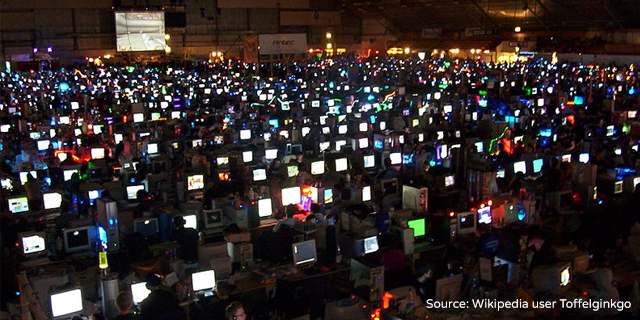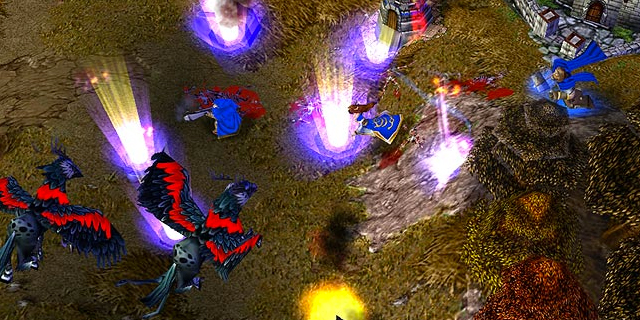
I recently read that there are no more nerds anymore. It’s an antiquated description. The stereotypical male, age 18-to-35, who lives in his parents’ basement reading comic books, plays Dungeons & Dragons, wears beat-up glasses and can’t function in a normal social setting still exists. But it’s becoming derogatory and ignorant to label anybody who enjoys video games or surfs the internet or doesn’t enjoy sports as a nerd, living in a basement somewhere, as a social reject.
Go back to ’80s sex-crazed comedies and all you’ll find are jocks and nerds. Jocks enjoy sports, drinking beer and having sex, whereas nerds will never get laid, enjoy electronics and speak in a nasally twang that nobody could possibly find attractive. That image is dead and buried deep. The concept of judging somebody based on their hobbies and interests has changed dramatically; the richest man in the world is a self-described nerd. Not as many would think to make fun of a quiet, shy boy or girl who happens to excel in computers. It’s a beautiful skill to have.
So, the nerd. Gone. Why?
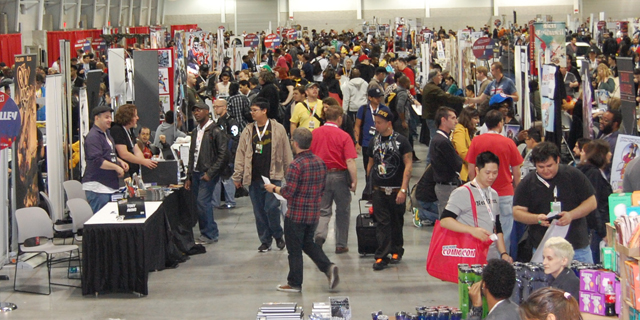
Because everybody is a nerd now. The actual definition of a nerd? They’re typically described as spending inordinate amounts of time on unpopular, obscure or non-mainstream activities, generally including some form of fantasy or sci-fi setting. Because of the Internet, however, there are no more obscure activities. Everything has a fan page on Facebook, and there are millions of websites dedicated to every form of entertainment you can think of, linking millions and enabling them to talk, discuss and create. Everybody likes Game of Thrones. Everybody has a computer, and you’d be hard-pressed to remember a day when you weren’t on the Internet. If you have a hobby, or an interest, you’re going to find others who do as well, and you won’t have to put in the extra effort to acquire the materials needed to be a fan and keep up with the latest. It’s all at your fingertips.
But nerds aren’t really gone. They’re still there. They put more thought into their hobbies. Maybe they write fan fiction about their favorite novel, or program their own computer game. You can have car nerds too. Ever been to a car show? Listen to somebody talk about their classic 1957 Corvette convertible, and tell me they don’t sound like the biggest nerd you know. And I’m using that as a term of endearment.
I’m still a nerd. Oh sure, I play sports. Nobody would call me socially awkward; I’m set to emcee two more weddings this summer, bringing my total up to six. But I’m a nerd. I spend an abundance of time playing games and writing about them. A few weekends ago, I attended a LAN party, one of the last true bastions of the nerd. And it was glorious.

A LAN party, for those who are unaware, is a temporary gathering of people with computers for the purpose of playing multiplayer games. It’s unusual. You’re used to having your computer to yourself, or maybe you play with friends online and speak to them using something like Skype or Teamspeak. But a LAN is a whole different beast. There’s something indescribably brilliant about winning a match, then going over to your teammates in person and talking about it. High-fiving. Gathering your group together to watch the replay. Tons of yelling and excitement. Normally you’d require a large amount of beer for five grown men to jump up and down like children on Christmas, but it’s not needed at a LAN party.
I’ve attended more than a few LANs in my day. Some were in a garage, and some were at my parents’ house, but the big ones were always in conference rooms or gyms. These are the best; the energy is generally subdued to begin with, but it quickly escalates. People arrive at different times, giving ample opportunity to greet each person, check out their rig and talk about what games they want to play. You can’t just walk into a LAN and immediately start playing. It would be akin to arriving to a sports field and start playing without warming up or putting on your gear. Likewise, a certain amount of organization is needed. You’re not going to find 22 random people on a field at the same time to play soccer, are you? You need dates, times and rules. What game is going to be the main event? How many tournaments are going to be set up, and how? You absolutely need a tech guy to ensure the network is setup properly, and to call out anybody who hogs the bandwidth by downloading torrents.
They’re just plain fun. When I attended a LAN a few weeks ago, I saw more than a few people I hadn’t seen in about ten years. Very little had changed; we were obviously still into games, and willing to lug 40 pounds of gear to a random room in a tech park to play games for 12 hours straight. Kind of nerdy, don’t you think?
But, again, this isn’t isolated behavior. This is not unpopular behavior, and it isn’t “non-mainstream.” Dreamhack in Sweden is the largest computer LAN party in the world. It occurs twice a year, and holds attendance records. Roughly 20,000 people get together to play games, attend musical concerts and watch live tournaments of gaming’s elite fight for cash prizes. Take a look at this picture. Show this to somebody in the ’80s, and they would ask what sci-fi movie this is from.
It’s not as entirely social as other gatherings. There’s usually no tailgating or communal meal. Lots of pizza and energy drinks fuel the participants beyond any sensible recommended dose. You spend the majority of time at your computer. But the proximity of your teammates, the camaraderie gained in wins (and losses), the novelty of being surrounded by people who share the same interest as you is intoxicating, with or without the aide of alcohol. Age doesn’t matter; the event transcends age, income or race. Like all great live events, they appeal to a wide variety of ages.
Tournaments within LANs mean that lighthearted fun steps aside to pave the way for temporary, heart-throbbing competition. It doesn’t matter who you are, it doesn’t matter if you know the game or not; you want to win. Or, at the very least, not lose in an embarrassing fashion. That’s your name up on the tournament board, people will be watching you and talking about the result. It’s all in good fun, sure, but it’s hard not to embrace the spotlight and fight for that win with everything you can muster.
Trying to tune out others watching you is tough; it’s a peculiar circumstance. Even if you’ve played the game before, you’re not used to several people hovering over your shoulder watching the action. Again, sport is an adequate metaphor. You’ve made that foul shot 100 times in your backyard. You can do it your sleep. Now, you’ve got tons of people watching, and there’s pressure to perform. Can you deliver?
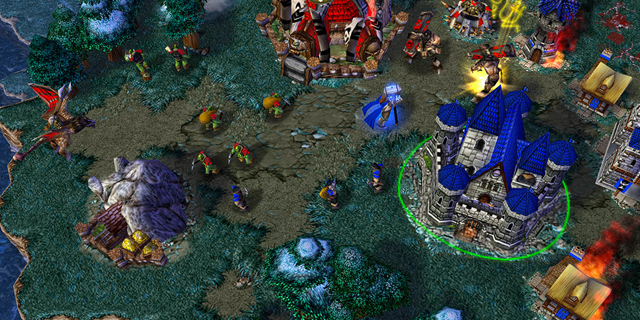
I’ll never forget my first LAN tournament I entered. It was for Warcraft 3, Blizzard’s not-quite-brilliant-but-close RTS gem. It was the summer of 2003, just under a year since the game’s launch. I’d gotten enough playing time in to understand the game’s fundamentals. I was nowhere close to being a “good” player. Like most activities in life, it takes a tremendous amount of practice to be good at a competitive game. Sure, I can play Chess. I know the rules. I know how the pieces move. But I have absolutely no chance to beat a highly-ranked competitive player. It’s one thing to know how to play the game; it’s another to know how the game should be played.
As you sit in your wall-less cubicle at your LAN seat, you peer out at the sea of fellow players. You have absolutely no idea who is good or who is bad. Don’t ask your opponent, either. Are you good? No, I suck! My online record is 137-111, and I can’t beat the huntress rush, like, ever. Answers like these are commonplace; they stem from a desire to be respectful and humble. Answers like these can make you look like a total idiot if you believe them before the match starts.
I lose my first match in 9 minutes. Rounds 2, 3 and 4 actually go quite well. I beat a guy called K-9 in back-to-back games, before reaching the quarterfinals against 12Haeger. I’m feeling good about myself. I’m staying calm, sticking to the fundamentals that a beginner should, not instantly forfeiting if I incorrectly sense that the game is lost. Hey, I’m improving! More people were crowding around as I huddle over my Toshiba Satellite, silently praying that I’ll somehow pull this off.
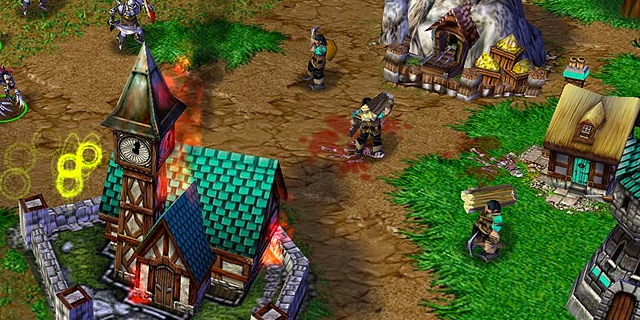
I select the human race, because I’m boring. After a quick traditional exchange of good luck messages, the game starts. My happy little peasants are gathering gold and chopping wood. I’ll never get tired of watching Warcraft peasants perform their deeds. They’ll chop down the Amazon rainforest if they can get back to the lumber mill, or don’t get killed. More work? Yes, m’lord.
We both try to expand on the map by creating second bases. I think I’m going to outsmart 12Haeger by sending all my forces to his expansion base to take it out. Sadly, he too has thought of this strategy, so we trade disappointments and are now both left with our original bases and a healthy does of humble pie.
Things don’t go so well for me after that. His huntress army somehow has a better handle on how to kill things than my riflemen, so my peasants scurry to the far end of the map to build a new and better life for themselves. A river to the south. Beautiful, rolling hills to the east. A lush forest north of the gold mine. And several dozen night elf warriors ready to murder all my adorable peasants. (They didn’t mention that in the brochure.)
So, to the utter delight of everybody watching and to both parties playing the game, the epic struggle between human and night elf has descended into a hilarious game of cat-and-really-pathetic-mouse. I try to build farms in random places to keep him preoccupied. I start to train one or two footmen, before they’re invariably slaughtered by his ever-growing army. Will I give up?
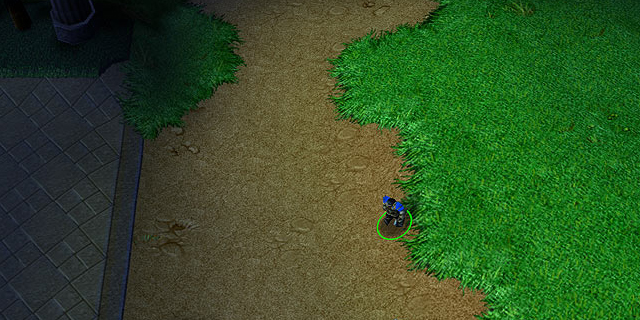
I absolutely will not. I’m having way too much fun with this. I fly my peasant on a mountain and build a farm. I give him a name: Bob the Builder. I create a life for Bob. He lives simply on his mountain farm. No army to feed and no comrades to share his stories with, Bob lived out his life for 47 seconds of ignorant bliss. A fire blast from the Chimaera ends the match at 28 minutes. Cheers and applause from the groups watching our game.
Handshakes are exchanged, more laughs. You can’t get this kind of reaction, or memory, from playing an online game. Seeing your opponent face to face might seem intimidating at first, but remember, they’re there for a good time, just like you. The only way to lose is not to play. I can’t recommend them enough.
After all, they’re full of nerds, just like you and me.



